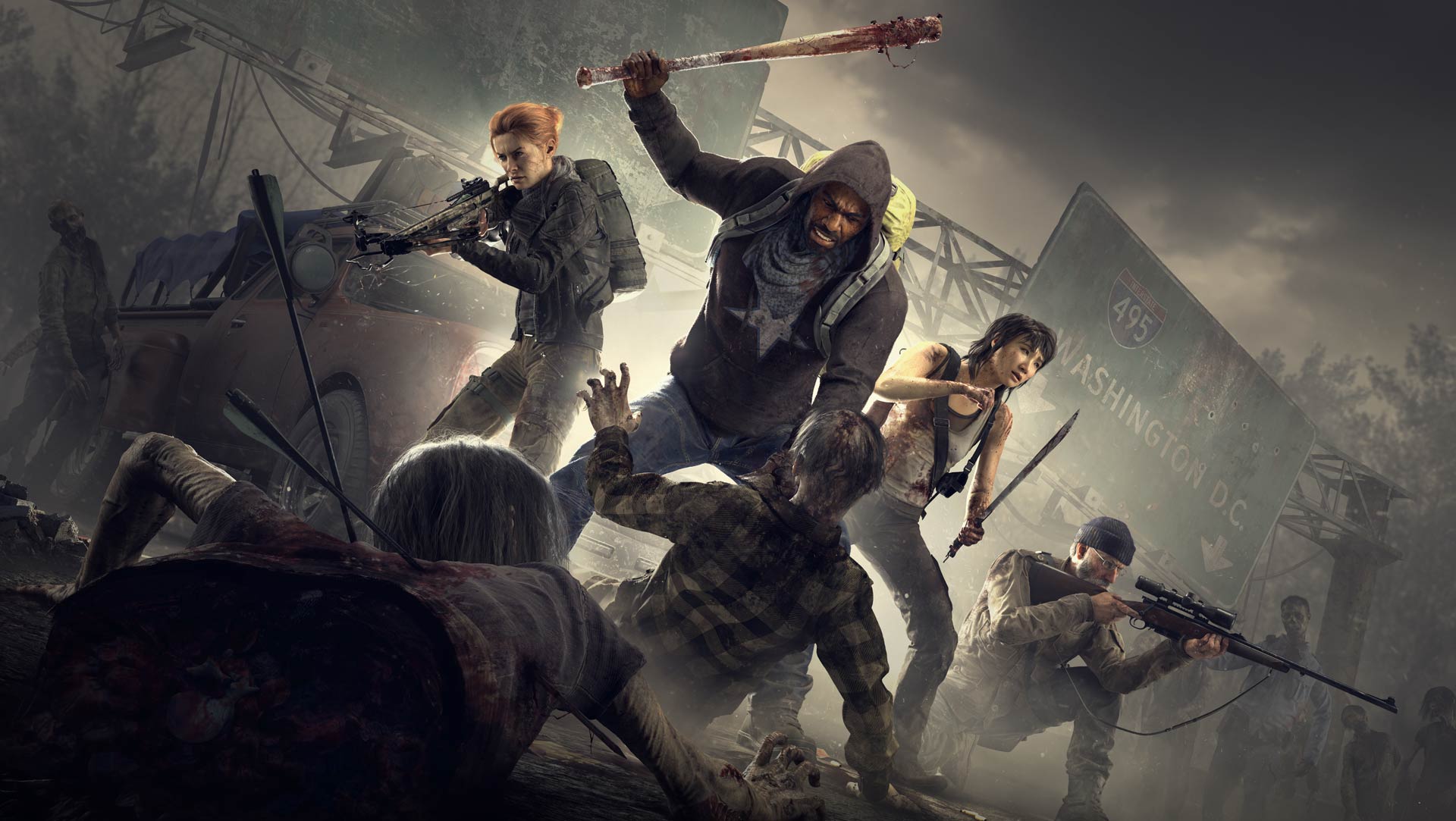Zombie mishmash
I suppose I should be thankful that Overkill’s The Walking Dead (which was originally slated for 2016) is spared the burden of being a shared universe with the now-dominant AMC universe. Almost single-handedly responsible for running the entire IP into the ground, the now Rick-less adventures ran out of steam years ago, but are still shambling along for multiple films.
Similarly, zombie games have trouble moving forward. We’ve come a long way since Dead Island but there’s still more work to be done.

If you’re confused as to what this Overkill project is I don’t blame you; most modern zombie-related media tends to blend together. It’s basically just a four-player co-op FPS set in the world of The Walking Dead by the makers of Payday. Instead of pulling off heists you’re going to be doing gear runs and escaping zombies: not so complicated, right?
The idea is that you’re constantly grinding out missions, earning loot (no microtransactions are present in case you’re wondering), leveling up, unlocking more story scenes through upgrading your camp and repeating the process until you’re satisfied. You can go at it solo, an admirable design decision that also scales down in difficulty (with options to ramp it up if you want) just like Call of Duty‘s zombie mode.
Overkill’s formula blends in a ton of different concepts, some of which don’t mesh as well as others. There’s the fortification mechanic, which is basically taken wholesale from Call of Duty in the sense that it’s mostly just for shutting down zombie entry points and not for significant bouts of engineering. The premise of the “horde meter” on select stages, which keeps going up as you make loud noises, is neat, but it ends up being too gamey and essentially doubles as a timer. A lot of items lack punch and presence, which dilutes the crafting system as you tediously create marginally better items. On top of all that I had numerous connection errors and long loads during my tests and in one instance, even joined at the very end of a failed round.
Don’t expect much of a story either. Although billed with a narrative focus, most of the beats are front-loaded at the start of missions or through out-of-game cinematics. It’s a sort of subtle storytelling method not unlike the one employed by Blizzard with Overwatch, but less successful. None of the good parts of the source material shine through, just a general “zombie” sense. All four main characters that follow the tank, support, tactics and scout archetypes (there are secret ones too and more on the way) were apparently created in conjunction with Walking Dead boss Robert Kirkman and “are canon” to the comic book series, if that gives you a bit of added enjoyment.
Characters, mind, that didn’t really have a lasting impact on me despite seeing them for hours on end. Kirkman has been pumping out compelling personas for this universe since 2003, giving them a whopping 15 years to breathe in some cases. But the lives of a former teacher, surgeon, hothead, and survivalist don’t really give us anything unique to latch onto.
Although this is a full non-Early Access launch, you’re going to have to wait a bit for more content due to the “season” approach of The Walking Dead. Season one arrives at launch, consisting of 10 episodes, or missions, which corral players into scenarios like faction wars while providing little narrative breadcrumbs alongside the backdrop of Washington DC. Season two starts at the end of the month and will be strung along through June 2019.
Overkill’s The Walking Dead is out now on Steam and will arrive in February on PS4 and Xbox One. There’s a lot of time for the studio is smooth things over, build on the season concept and trim some of the fat. For now, be cautious — $60 is a big ask.
[These impressions are based on a retail copy of the game provided by the publisher.]








